 ArtykułyCzytamy w weekend. 26 kwietnia 2024
ArtykułyCzytamy w weekend. 26 kwietnia 2024 LubimyCzytać100
LubimyCzytać100 ArtykułySzpiegowskie intrygi najwyższej próby – wywiad z Robertem Michniewiczem, autorem „Doliny szpiegów”
ArtykułySzpiegowskie intrygi najwyższej próby – wywiad z Robertem Michniewiczem, autorem „Doliny szpiegów” Marcin Waincetel5
Marcin Waincetel5 ArtykułyWyślij recenzję i wygraj egzemplarz „Ciekawscy. Jurajska draka” Michała Łuczyńskiego
ArtykułyWyślij recenzję i wygraj egzemplarz „Ciekawscy. Jurajska draka” Michała Łuczyńskiego LubimyCzytać2
LubimyCzytać2 Artykuły„Spy x Family Code: White“ – adaptacja mangi w kinach już od 26 kwietnia!
Artykuły„Spy x Family Code: White“ – adaptacja mangi w kinach już od 26 kwietnia! LubimyCzytać2
LubimyCzytać2
- Polecamy
If the Universe Is Teeming with Aliens ... Where Is Everybody?
Stephen Webb Wydawnictwo: Springer astronomia, astrofizyka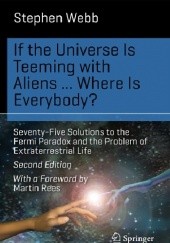
- Kategoria:
- astronomia, astrofizyka
- Wydawnictwo:
- Springer
- Data wydania:
- 2015-01-01
- Data 1. wydania:
- 2015-01-01
- Język:
- angielski
- ISBN:
- 9783319132365
- Tagi:
- obcy ewolucja kosmos cywilizacje pozaziemskie życie SETI
Given the fact that there are perhaps 400 billion stars in our Galaxy alone, and perhaps 400 billion galaxies in the Universe, it stands to reason that somewhere out there, in the 14-billion-year-old cosmos, there is or once was a civilization at least as advanced as our own. The sheer enormity of the numbers almost demands that we accept the truth of this hypothesis. Why, then, have we encountered no evidence, no messages, no artifacts of these extraterrestrials?
In this second, significantly revised and expanded edition of his widely popular book, Webb discusses in detail the (for now!) 75 most cogent and intriguing solutions to Fermi's famous paradox: If the numbers strongly point to the existence of extraterrestrial civilizations, why have we found no evidence of them?
Reviews from the first edition:
"Amidst the plethora of books that treat the possibility of extraterrestrial intelligence, this one by Webb … is outstanding. … Each solution is presented in a very logical, interesting, thorough manner with accompanying explanations and notes that the intelligent layperson can understand. Webb digs into the issues … by considering a very broad set of in-depth solutions that he addresses through an interesting and challenging mode of presentation that stretches the mind. … An excellent book for anyone who has ever asked ‘Are we alone?’." (W. E. Howard III, Choice, March, 2003)
"Fifty ideas are presented … that reveal a clearly reasoned examination of what is known as ‘The Fermi Paradox’. … For anyone who enjoys a good detective story, or using their thinking faculties and stretching the imagination to the limits … ‘Where is everybody’ will be enormously informative and entertaining. … Read this book, and whatever your views are about life elsewhere in the Universe, your appreciation for how special life is here on Earth will be enhanced! A worthy addition to any personal library." (Philip Bridle, BBC Radio, March, 2003)
Since gaining a BSc in physics from the University of Bristol and a PhD in theoretical physics from the University of Manchester, Stephen Webb has worked in a variety of universities in the UK. He is a regular contributor to the Yearbook of Astronomy series and has published an undergraduate textbook on distance determination in astronomy and cosmology as well as several popular science books. His interest in the Fermi paradox combines lifelong interests in both science and science fiction.Porównaj ceny
iPorównywarka z zawsze aktualnymi cenami
W naszej porównywarce znajdziesz książki, audiobooki i e-booki, ze wszystkich najpopularniejszych księgarni internetowych i stacjonarnych, zawsze w najlepszej cenie. Wszystkie pozycje zawierają aktualne ceny sprzedaży. Nasze księgarnie partnerskie oferują wygodne formy dostawy takie jak: dostawę do paczkomatu, przesyłkę kurierską lub odebranie przesyłki w wybranym punkcie odbioru. Darmowa dostawa jest możliwa po przekroczeniu odpowiedniej kwoty za zamówienie lub dla stałych klientów i beneficjentów usług premium zgodnie z regulaminem wybranej księgarni.
Za zamówienie u naszych partnerów zapłacisz w najwygodniejszej dla Ciebie formie:
• online
• przelewem
• kartą płatniczą
• Blikiem
• podczas odbioru
W zależności od wybranej księgarni możliwa jest także wysyłka za granicę. Ceny widoczne na liście uwzględniają rabaty i promocje dotyczące danego tytułu, dzięki czemu zawsze możesz szybko porównać najkorzystniejszą ofertę.Szukamy ofert...
Patronaty LC
Mogą Cię zainteresować
Oceny
Książka na półkach
- 16
- 3
- 1
- 1
- 1
Cytaty
Stephen Webb If the Universe Is Teeming with Aliens ... Where Is Everybody? Zobacz więcejFor example, you’ll often hear astrobiologists claim that once life gets going it’s extreme resilient—and they support their claim by enumerating the many and varied shocks that the universe has thrown life’s way, from asteroid impact to catastrophic climate change. Life on Earth has survived all those shocks, so it certainly seems to be robust. But how could we possibly observe it to be otherwise? Any intelligent observer has to look back on its evolutionary history and see events that failed to wipe out life; if life had been wiped out there’d be no intelligent observers to look back and bemoan the fact.
For example, you’ll often hear astrobiologists claim that once life gets going it’s extreme resilient—and they support their claim by enumer...
Rozwiń ZwińStephen Webb If the Universe Is Teeming with Aliens ... Where Is Everybody? Zobacz więcejIt hardly seems worth mentioning that, depending upon the severity of a nuclear war, the extinction of an intelligent species might follow. (One hesitates to use the word “intelligent” in this context, but the meaning is clear.).
It hardly seems worth mentioning that, depending upon the severity of a nuclear war, the extinction of an intelligent species might follow. ...
Rozwiń ZwińStephen Webb If the Universe Is Teeming with Aliens ... Where Is Everybody? Zobacz więcejEvery species has abilities, forged by evolution, which enable them to scrape a living in a world that cares not whether they survive.
Every species has abilities, forged by evolution, which enable them to scrape a living in a world that cares not whether they survive.
dodaj nowy cytatWięcejPowiązane treści
Podobne książki
Przeczytaj także

























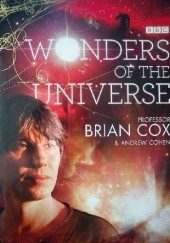
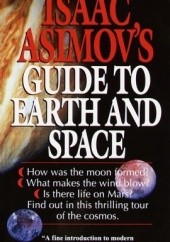
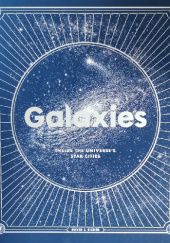
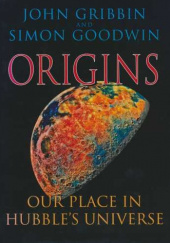


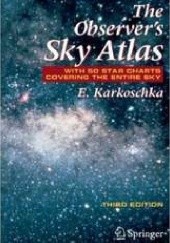

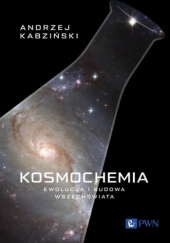
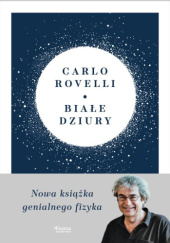
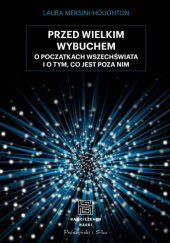

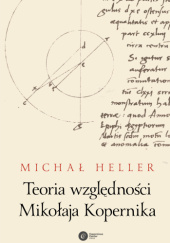
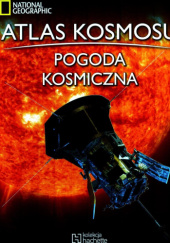

OPINIE i DYSKUSJE
Pamiętam kiedy pierwszy raz spotkałem się z pojęciem skali Kardaszewa. Albo Sfery Dysona. Mózgu matrioszki, Mózgu Boltzmanna. I wiele innych. Za każdym razem wyobraźnia wchodziła na najwyższe obroty i byłem zaskoczony, że ludzie nauki, mniej lub bardziej poważnie, rozmyślają o tak mocno wybiegających w stronę fantazji tematach. Marzyło mi się kompendium takiej wiedzy, bo losowe skakanie wzdłuż internetowych ścieżek zawsze budziło we mnie obawę, że coś mi umknie.
Przypadkiem, bo nie spodziewałem się tego po tytule, trafiłem na takie kompendium w postaci tej książki. Myślą przewodnią są rozważania na temat tego, dlaczego nie zaobserwowaliśmy do tej pory cywilizacji pozaziemskich - rozważania w postaci siedemdziesięciu pięciu potencjalnych rozwiązań tzw. paradoksu Fermiego.
Odpowiedzi są podzielone na trzy kasy: obce życie istnieje i jest tutaj; obce życie istnieje, ale jego śladów tutaj nie ma; obce życie nie istnieje. Każde potencjalne rozwiązanie zawiera jakąś ciekawą ideę, jej opis, krótka historię i analizę tego jak prawdopodobna może być. Ta forma pozwala przemycić w książce mnóstwo niezmiernie ciekawych koncepcji związanych, mniej lub bardziej ściśle, z rozwojem życia we wszechświecie i naszych poszukiwaniach tego życia. Są tutaj rozpatrywane teorie na temat powstawania życia i modele jego rozprzestrzeniania się w galaktykach. W tym również hipotezy na temat powstania życia na Ziemi, powstania inteligencji, powstania świadomości, rozwoju nauki, technologii. Są opisane techniki których używamy obecnie do poszukiwania śladów pozaziemskich cywilizacji. Są opisane, zarówno te istniejące, jak i te czysto teoretyczne technologie podróżowania w przestrzeni kosmicznej. Megastruktury kosmiczne i techniki ich wykrywania. Modele rozwoju planet i układów planetarnych. Natłok wiedzy w tej książce jest ogromny!
Oczywiście całość mogłaby być lepsza - wszystkie te rzeczy opisane są dość skrótowo. Ale traktuję tę książkę jako skondensowaną pigułę wiedzy (mimo, że skondensowaną, to wcale nie małą) i drogowskaz, i tak ją traktując nie waham się przed wystawieniem jej dziesięciu gwiazdek. Na zachętę dodam, że po przeczytaniu zostało mi mnóstwo notatek o kolejnych rzeczach do przeczytania - książkach SF, ciekawych hipotezach, modelach i ludziach. Bogate przypisy (~400 pozycji, niektóre dość dokładnie opisane) same w sobie dostarczają już sporą ilość lektury.
Chyba nie muszę wspominać, że polecam?
Pamiętam kiedy pierwszy raz spotkałem się z pojęciem skali Kardaszewa. Albo Sfery Dysona. Mózgu matrioszki, Mózgu Boltzmanna. I wiele innych. Za każdym razem wyobraźnia wchodziła na najwyższe obroty i byłem zaskoczony, że ludzie nauki, mniej lub bardziej poważnie, rozmyślają o tak mocno wybiegających w stronę fantazji tematach. Marzyło mi się kompendium takiej wiedzy, bo...
więcej Pokaż mimo to